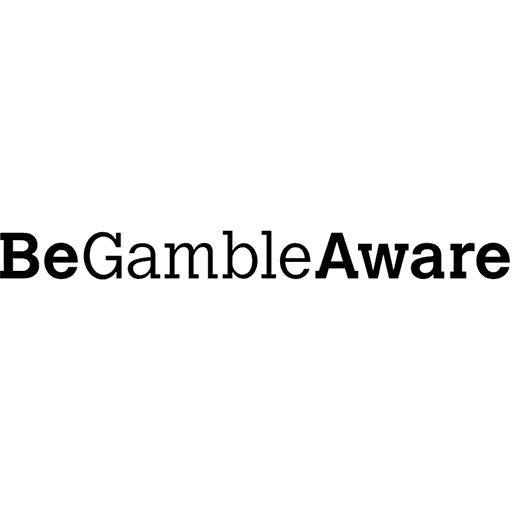If you’re new to sports betting, the odds can be a bit confusing at first. But don’t worry, it’s not as complicated as it seems. Understanding how sports betting odds work is essential for anyone looking to place bets. This guide will break down the basics of odds, explain the different types, and give you the tools to make informed betting decisions.
Key Takeaways
- Sports betting odds indicate the likelihood of an event happening and determine potential payouts.
- There are three main types of odds: American, fractional, and decimal, each with its own way of representing betting amounts.
- Understanding implied probability helps you evaluate whether a bet is worth placing based on the odds offered.
- Successful betting requires research on teams and players, as well as effective bankroll management.
- Common mistakes include not tracking line movements, chasing losses, and betting without proper research.
Understanding The Basics Of Sports Betting Odds
What Are Sports Betting Odds?
Sports betting odds can seem confusing at first glance, but they’re really just a way to show you how likely something is to happen and how much money you could win if you bet on it. Essentially, they represent the ratio between your stake and your potential winnings. Think of them as the language of betting; once you understand it, you can start making smarter choices. Traders at sportsbooks set these odds, considering factors like team performance, player stats, and even things like weather conditions. The goal is to attract bets on all possible outcomes, balancing the bookmaker’s risk.
Why Are Odds Important?
Odds are super important because they tell you two key things:
- The potential payout if your bet wins.
- The implied probability of an event happening.
Understanding odds allows you to compare different bets and find the ones that offer the best value. You wouldn’t buy something without comparing prices, right? Same goes for betting. If you just pick odds randomly, you’re basically throwing money away. By understanding how odds work, you can make informed decisions and increase your chances of winning in the long run. It’s about being strategic, not just lucky.
How Odds Reflect Probability
Odds aren’t just random numbers; they’re directly related to the probability of an event occurring. The shorter the odds, the more likely the event is to happen, according to the bookmakers. Conversely, longer odds suggest a lower probability. For example, if a team is heavily favored to win, their odds will be short, meaning a smaller payout for a winning bet. If a team is a long shot, their odds will be higher, offering a larger potential payout.
It’s important to remember that these probabilities are just the bookmaker’s assessment. Your own research and analysis might lead you to a different conclusion, which is where the opportunity for finding value bets comes in. If you think the bookmaker has underestimated a team’s chances, you can capitalize on the higher odds.
To illustrate this, consider a simple coin toss. The true probability of heads or tails is 50/50. However, sportsbooks will rarely offer even money (1/1) on a coin toss. They might offer something like 10/11 on each outcome. This slight difference is how they make their profit, regardless of the result. This is called the vigorish, or the juice. Understanding this concept is key to becoming a successful sports bettor.
Types Of Sports Betting Odds Explained
American Odds Overview
American odds, often seen at sportsbooks, can look a bit confusing at first. They show you how much you’d win on a $100 bet. These odds use plus (+) and minus (-) signs. A plus sign means you’d win that amount on a $100 wager. A minus sign shows how much you need to bet to win $100. For example, if the betting odds are +200, a $100 bet wins you $200. If the odds are -150, you need to bet $150 to win $100.
Fractional Odds Breakdown
Fractional odds are common, especially in the UK. They’re written as fractions, like 5/1 or 1/2. The first number is how much you win, and the second is how much you bet. So, at 5/1, you win $5 for every $1 you bet, plus you get your dollar back. At 1/2, you win $1 for every $2 you bet, plus your stake back. It’s all about the ratio of profit to stake.
Decimal Odds Simplified
Decimal odds are popular in Europe and Australia. They’re easy to understand because they show the total payout, including your original bet, for every $1 wagered. So, if the decimal odds are 3.00, a $1 bet returns $3.00. This means your profit is $2.00, and $1.00 is the returned stake. To calculate your potential winnings, you just multiply your stake by the decimal odds. It’s a straightforward way to see what you’ll get back.
Understanding the different types of odds is key to successful sports betting. Each type presents the same probability, just in a different format. Knowing how to convert between them helps you compare odds across different sportsbooks and find the best value for your bets.
How To Read Sports Betting Odds
Learning to decipher sports betting odds is a skill every bettor needs. It might seem tricky at first, but with a little practice, it becomes second nature. Being able to quickly understand what the odds are telling you is key to spotting potential opportunities and making informed decisions. It’s about more than just knowing who’s favored to win; it’s about understanding the value a bet holds.
Interpreting American Odds
American odds, also known as moneyline odds, are displayed with a plus (+) or minus (-) sign. The minus sign indicates the amount you need to bet to win $100, while the plus sign shows how much you’ll win for every $100 you bet. For example:
- -150 means you need to bet $150 to win $100.
- +200 means you win $200 for every $100 you bet.
- A lower negative number indicates a stronger favorite.
American odds can be a bit confusing at first, but once you grasp the concept, they become a quick way to assess the potential payout and the implied probability of an event.
Understanding Fractional Odds
Fractional odds are commonly used in the UK and are represented as a fraction, such as 5/1 or 1/2. The first number represents the amount you could win relative to the second number, which is your stake. So, 5/1 means you win $5 for every $1 you stake, in addition to getting your stake back. Here’s a quick breakdown:
- 5/1: Win $5 for every $1 staked.
- 1/2: Win $1 for every $2 staked.
- The higher the first number, the bigger the potential payout.
Decoding Decimal Odds
Decimal odds are popular in Europe, Australia, and Canada. They represent the total payout, including your stake, for every $1 wagered. To calculate your potential winnings, you simply multiply your stake by the decimal odds. For instance, if the decimal odds are 2.50 and you bet $10, your total payout would be $25 (10 x 2.50), which includes your initial $10 stake. Here’s a simple way to think about it:
- Decimal Odds x Stake = Total Payout
- A lower decimal number indicates a higher probability of winning, but a smaller payout.
- A higher decimal number means a lower probability of winning, but a larger payout. Understanding betting value is key.
Calculating Implied Probability From Odds
What Is Implied Probability?
Implied probability is basically what the odds suggest about the chance of an event happening. Sportsbooks don’t just pull odds out of thin air; they’re trying to represent the likelihood of different outcomes. Understanding implied probability helps you see if the odds offered are actually worth betting on. It’s a conversion of betting odds into a percentage, giving you a clearer picture of the perceived risk.
How To Calculate Implied Probability
Calculating implied probability depends on the type of odds you’re dealing with: American, fractional, or decimal. Each has its own formula.
- American Odds: These are a bit trickier because they change based on whether they’re positive or negative.
- Positive Odds: (100 / (Odds + 100)) * 100 = Implied Probability
- Negative Odds: (Odds / (Odds + 100)) * 100 = Implied Probability (use the absolute value of the odds)
- Fractional Odds: This is often seen as the easiest to grasp.
- (Denominator / (Denominator + Numerator)) * 100 = Implied Probability
- Decimal Odds: Super straightforward.
- (1 / Odds) * 100 = Implied Probability
For example, let’s say you’re looking at a game with the following odds:
| Odds Type | Example Odds | Calculation | Implied Probability |
|---|---|---|---|
| American | +200 | (100 / (200 + 100)) * 100 | 33.3% |
| American | -150 | (150 / (150 + 100)) * 100 | 60% |
| Fractional | 3/1 | (1 / (1 + 3)) * 100 | 25% |
| Decimal | 2.50 | (1 / 2.50) * 100 | 40% |
Using Probability To Find Value Bets
Okay, so you know how to calculate implied probability. Now what? This is where it gets interesting. You need to compare the implied probability to your own assessment of the event’s likelihood. If you think a team has a 60% chance of winning, but the implied probability from the odds is only 50%, you might have found a value bet.
Basically, you’re looking for situations where the sportsbook is underestimating the probability of an outcome. This doesn’t guarantee a win, but over time, consistently finding value bets can improve your profitability. It’s all about finding discrepancies between the odds and your own analysis.
Here are some steps to consider:
- Do Your Homework: Research the teams, players, and any relevant factors that could influence the game.
- Form Your Own Opinion: Based on your research, estimate the true probability of each outcome.
- Compare and Contrast: Calculate the implied probability from the sportsbook’s odds and compare it to your own estimated probability.
- Identify Value: If your estimated probability is higher than the implied probability, it could be a value bet.
Strategies For Successful Sports Betting
Researching Teams And Players
Okay, so you want to actually win at sports betting? It’s not just about picking your favorite team. You need to put in the work. That means research, research, and more research. I’m talking deep dives into team stats, player performance, injury reports, and even the weather forecast. Seriously, a rainy day can totally change a baseball game.
- Look at recent performance. How have they been playing lately?
- Check head-to-head records. Does one team consistently beat another?
- Consider external factors. Is there a key player injured? Is the team traveling?
Don’t just rely on what the talking heads on TV are saying. Do your own homework. The more you know, the better your chances of making smart bets. It’s about finding an edge that other people are missing.
Managing Your Bankroll
This is where a lot of people mess up. They get excited, start betting big, and then lose it all in a flash. Don’t be that person. Bankroll management is all about being smart with your money. Think of it as an investment, not a free-for-all. A good starting point is to only risk 1-5% of your bankroll on any single bet. This helps you weather any losing streaks and stay in the game longer. You can also use sports betting units to organize your bankroll.
- Set a budget. Decide how much you’re willing to lose before you start betting.
- Track your bets. Know where your money is going and how well you’re doing.
- Be disciplined. Stick to your plan, even when you’re winning (or losing).
Identifying Value Bets
Value betting is where the real money is made. It’s about finding situations where the odds offered by the sportsbook don’t accurately reflect the true probability of an outcome. In other words, you’re looking for bets where you think the payout is higher than it should be. This requires a good understanding of how odds reflect probability and the ability to make your own assessments.
- Calculate implied probability. Convert the odds into a percentage chance of winning.
- Compare your assessment to the sportsbook’s odds. If you think the true probability is higher than the implied probability, it’s a value bet.
- Be patient. Value bets don’t come along every day. Wait for the right opportunities.
Here’s a simple example:
| Scenario | Sportsbook Odds | Your Assessment | Value Bet? |
|---|---|---|---|
| Team A to win | +200 | 40% | Yes |
| Team B to score first | -150 | 55% | No |
Common Mistakes In Sports Betting
Ignoring Line Movements
Okay, so you’ve found a bet you like. Great! But did you check if the line moved since you first saw it? Ignoring line movements is a classic rookie mistake. Lines move for a reason – injuries, weather, public money flooding in, all sorts of stuff. If a line is shifting dramatically, there’s probably information out there you don’t have. It’s worth digging a little deeper before you jump in.
Chasing Losses
Ugh, this one’s tough because we’ve all been there. You lose a bet, and suddenly you’re thinking, "I just need to win this next one to get back to even!" That’s how chasing losses starts, and it’s a dangerous game. It’s easy to start making rash decisions, betting more than you should, and generally just digging yourself into a deeper hole. Trust me, I’ve been there. Instead of trying to recoup immediately, take a break, reassess, and come back with a clear head. Remember, each bet is an independent event; don’t let a previous loss dictate your future actions. It’s important to have bankroll management in place.
Betting Without Research
So, your buddy told you this team is a lock, or you just "have a feeling" about a game? That’s cool, but it’s not a strategy. Betting without research is basically just throwing money away. You don’t need to be an expert, but at least do some basic homework. Look at team stats, recent performance, injuries, weather, anything that could affect the outcome. A little bit of research can go a long way in improving your sports betting odds.
It’s easy to get caught up in the excitement of sports betting, but remember that it’s a marathon, not a sprint. Avoid these common mistakes, and you’ll be well on your way to becoming a more successful and profitable bettor. Stay disciplined, do your research, and don’t let emotions cloud your judgment.
Finding The Best Sports Betting Odds
Comparing Odds Across Sportsbooks
Finding the best odds is super important if you want to make money betting on sports. Different sportsbooks will often have slightly different odds on the same event. It might not seem like a big deal, but those little differences can really add up over time. Think of it like shopping around for the best price on anything else you buy – you wouldn’t just grab the first thing you see, right? Same goes for betting odds.
- Check multiple sportsbooks before placing a bet.
- Look for discrepancies, even small ones.
- Consider using different sportsbooks for different sports, as some might specialize in certain areas.
Using Odds Comparison Tools
Odds comparison tools are your best friend. These tools do the hard work for you, scanning various sportsbooks and showing you where to find the best sports betting odds for a particular game or event. It’s like having a personal assistant dedicated to finding you the most profitable bets. They’re easy to use and can save you a ton of time.
- Enter the game or event you’re interested in.
- The tool displays odds from various sportsbooks.
- Quickly identify the best possible payout.
Understanding Line Shopping
Line shopping is the process of comparing odds at different sportsbooks to find the most favorable line for your bet. It’s a simple concept, but it requires discipline and a little bit of effort. The goal is to maximize your potential winnings (or minimize your losses) by always betting where the odds are most in your favor. It’s all about getting the best possible value for your money.
Think of line shopping as an investment in your betting strategy. It might take a few extra minutes to check different sportsbooks, but those minutes can translate into significant profits over the long run. Don’t just settle for the first odds you see – take the time to shop around and find the best deal.
Wrapping It Up
So, there you have it! Sports betting odds might seem tricky at first, but once you get the hang of it, it’s not so bad. Remember, odds show you how likely something is to happen and what you could win if it does. Whether you’re looking at American, fractional, or decimal odds, just take your time to understand them. Always shop around for the best odds, because even a small difference can mean more money in your pocket. And don’t forget to keep learning and stay smart about your bets. Good luck out there!
Frequently Asked Questions
What are sports betting odds?
Sports betting odds show how likely something is to happen in a game. They help you understand how much money you can win based on your bet.
Why are odds important in sports betting?
Odds are important because they tell you how much you can win and how likely it is that a certain outcome will happen. Knowing this helps you make better betting choices.
How do I read American odds?
American odds can be positive or negative. Positive odds show how much you can win on a $100 bet, while negative odds show how much you need to bet to win $100.
What are implied probabilities?
Implied probability is a way to understand how likely an event is to happen based on the odds. It helps you see if a bet is worth it.
What should I do to find the best betting odds?
To find the best odds, compare different sportsbooks and use tools that show you the odds from various places. This way, you can get the most value for your bets.
What are common mistakes in sports betting?
Some common mistakes include not doing enough research, chasing losses by betting more after a loss, and ignoring changes in the odds.













